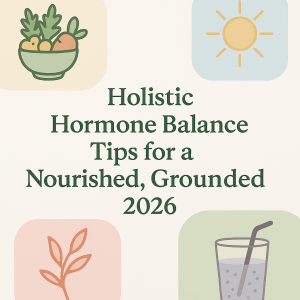In the world of wellness, metabolism often feels like a mysterious force—some people seem to burn calories effortlessly, while others struggle despite eating mindfully and staying active.
But here’s the truth: metabolism isn’t magic. It’s a biological process we can understand, support, and even enhance naturally. Whether you’re navigating weight management, energy dips, or hormonal shifts, learning how to boost metabolism naturally can be a game-changer.
Let’s explore what metabolism really is, how it works, and the most effective ways to nurture it—without crash diets or extreme workouts.
🔬 What Is Metabolism?
Metabolism is the process by which your body converts food into energy. Every bite you eat fuels your cells, powers your organs, and keeps you alive. This energy is used for everything—from breathing and digestion to walking and thinking.
Your Basal Metabolic Rate (BMR) is the amount of energy your body needs at rest to maintain vital functions. Add in your daily movement, exercise, and digestion, and you get your Total Daily Energy Expenditure (TDEE).
Factors That Influence Metabolic Rate:
- Age: Metabolism naturally slows as we age.
- Gender: Men typically have higher muscle mass, which boosts metabolism.
- Genetics: Some people inherit faster or slower metabolic tendencies.
- Muscle Mass: More muscle = higher energy burn.
- Hormonal Health: Thyroid, insulin, and cortisol levels play key roles.
- Activity Level: Movement increases calorie burn and metabolic efficiency.

Signs of a Sluggish or Fast Metabolism
Understanding your body’s signals can help you tailor your wellness routine.
Signs of Slow Metabolism:
- Fatigue and low energy
- Weight gain despite healthy eating
- Feeling cold often
- Dry skin or hair thinning
- Constipation
Signs of Fast Metabolism:
- Frequent hunger
- Difficulty gaining weight
- High energy levels
- Sweating easily
Natural Ways to Boost Metabolism
Now for the good stuff—how to support your metabolism naturally through nutrition, movement, and lifestyle.
Nutrition Strategies
- Eat More Protein. Protein has a high thermic effect of food, meaning your body burns more calories digesting it. Include lean meats, legumes, tofu, and nuts.
- Spice It Up Spicy foods like chili peppers contain capsaicin, which may temporarily increase metabolic rate.
- Stay Hydrated. Drinking water—especially cold water—can slightly boost metabolism. Aim for 2–3 liters daily.
- Don’t Skip Meals. Skipping meals can slow metabolism. A nourishing breakfast kickstarts your energy burn for the day.
- Choose Whole Foods. Whole, nutrient-dense foods support digestion and hormonal balance, which are key to metabolic health.
Physical Activity
- Strength Training: Building muscle increases your resting metabolic rate. Try resistance bands, bodyweight exercises, or weights.
- High-Intensity Interval Training (HIIT) Short bursts of intense movement followed by rest can elevate metabolism for hours post-workout.
- Daily Movement: Walk, stretch, dance—just keep moving. Even standing more often helps.
Lifestyle Habits
- Get Enough Sleep. Poor sleep disrupts hormones like cortisol and insulin, which can slow metabolism. Aim for 7–9 hours.
- Manage Stress: Chronic stress elevates cortisol, which may lead to fat storage and metabolic slowdown. Try meditation, journaling, or breathwork.
- Avoid Crash Diets. Extreme calorie restriction can cause your body to conserve energy, slowing metabolism long-term.
- Drink Green Tea or Coffee. Caffeine and antioxidants in green tea may enhance fat oxidation and energy expenditure.
Metabolism Myths—Debunked
Let’s clear up some common misconceptions:
- Myth: Thin people have faster metabolisms. Truth: Body size affects calorie needs, but thin people can have slow metabolisms too.
- Myth: You can’t change your metabolism. Truth: While genetics play a role, lifestyle choices can significantly influence metabolic rate.
- Myth: Eating late at night slows metabolism. Truth: It’s more about what and how much you eat than when.
Metabolism and Aging
As we age, muscle mass tends to decline, and hormonal shifts (especially in women) can affect metabolism. The good news? Strength training, balanced nutrition, and stress management can help counteract these changes.
Hormonal Imbalances and Metabolism
If you suspect thyroid issues, insulin resistance, or adrenal fatigue, consult a healthcare provider. These conditions can impact metabolism and may require medical support alongside lifestyle changes.
Tracking Your Metabolic Health
Want to understand your metabolism better? Try estimating your BMR and TDEE using online calculators or fitness apps. Track your energy levels, sleep, and body composition—not just weight.
Download Your Free Wellness Printables
Ready to support your metabolism and nurture your energy—naturally and joyfully?
Download your exclusive resources from Holistic Wellness Hub:
- ✅ Metabolism-Boosting Checklist: A beautifully designed guide to help you stay on track with daily habits that fuel your body and mind.
- 📝 Self-Care Journal Page: Reflect, reset, and reconnect with your wellness goals using this calming, printable journal inspired by today’s blog.
Pin it, print it, or keep it close—your wellness journey deserves support and celebration.
Your body is wise—nourish it with love and consistency. — Holistic Wellness Hub
FAQs About Metabolism and Weight Management
Q1: Can I really boost my metabolism naturally?
Yes! Through protein-rich meals, strength training, hydration, and sleep, you can support a healthier metabolic rate.
Q2: How long does it take to see results?
It varies. Some people notice changes in energy and weight within weeks, while others may take longer. Consistency is key.
Q3: Is metabolism the only factor in weight management?
No. Emotional health, hormones, gut health, and lifestyle all play roles. Metabolism is one piece of the puzzle.
Q4: Are metabolism boosters or supplements safe?
Some may help, but many are unregulated. Focus on whole foods and natural strategies first.
Q5: What’s the best exercise for metabolism?
Strength training and HIIT are top choices. However, any movement—such as walking, dancing, or yoga—supports metabolic health.
Final Thoughts
Metabolism isn’t about chasing perfection—it’s about understanding your body’s rhythm and nurturing it with love. Whether you’re rebuilding your energy, managing your weight, or simply seeking balance, making small daily choices can have a significant impact.















